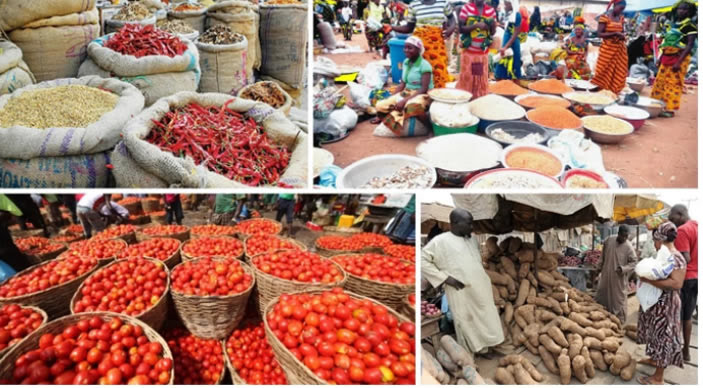HIGH COST OF LIVING: Time for Government to Act is Now!

While the skyrocketing rate of the prices of staple food items in Nigeria's food market does not come as a surprise occasioned by the increase in the pump price of petroleum products, it is however worth mentioning that the exploitative nature of some set of Nigerians immediately call for a government action to help curb such exploitation of vulnerable citizens.
For reference purpose, in the urban centers of Delta State, a basket of garri and beans which earlier were sold for about N2,000k and N2,500k respectively, now goes for as high as N4,500k and N5,000k. It seems like citizens are confronted with a new increment in the prices of staple food items daily, making life very difficult for so many families, especially those in the riverine areas of the State where the prices are much higher.
When traders of local staple food items are asked why the increment in the prices of commodities, most responses are geared toward the high cost of transportation in moving raw food items from rural communities where they are produced to the urban areas where they are in high demands. Apart from high transportation fares, other factors center around multiple taxation from illegal sources between the point of food source to the destination for sales.
Nonetheless, we believe that despite the above factors, the skyrocketing prices of staple food items is an abuse of the economics of a free market, and if it continues to go unchecked, we are afraid it will worsen an already hyperinflation situation in the country. The effect of this will trickle down to other sectors because the prices of food items, to a large extent, have direct bearing on other sectors like education, housing, health, security, among others, as witnessed by the high cost of living.
While we are aware that certain actions have already been taken in the recent past such as the decision by the House of Representatives to investigate the daily increase in food prices, and that an order from the Federal High Court in Lagos on February 7 to the federal government to fix the prices of goods and petroleum products, the response of the President Bola Ahmed Tinubu administration that it will not establish a price control board or approve the importation of food as measures to address the hardship, is disheartening.
While we do not subscribe to food importation, we however believe that government need to urgently put in place remedial measures to help curb the abuse in the hike of staple food prices, especially those that are homegrown. To this effect, the government need to bring down the rising pump price of petroleum products, to diversify the modes of transportation, and to ensure that price control board perform its official functions.
We have always believed in the power of transportation as a driver of economic growth and development. A cheap transport sector will go a long way in curbing the unnecessary high prices of food commodities, especially those that are homegrown. This means that the nation's refineries must become active while news ones are built, and that private investors should be encouraged to build refineries as well as to ensure that petroleum products are not scarce.
On transport infrastructures, the government need to come up with a transportation blueprint to rejig the transport sector especially to take pressures off the roads by introducing alternate means of moving goods and passengers. To this effect, the railways and the waterways should be explored to help federal roads last longer, as well as ease movement.
Lastly, while the country operates a free economy as dictated by the laws of supply and demand, the government however owes its citizens the fiduciary duty to protect them from undue exploitation from producers. And so a price control board should be active in ensuring that citizens are not subject to indiscriminate prices from greedy merchants. It is quite appalling to note that there exist various price differentials of same commodity in same marketspace. Therefore price regulation cannot and must not be ruled out!
The failure of the government to act now to curb the high cost of living occasioned by the rising prices of commodities will worsen the escalating rate of poverty which may further fuel insecurity and crime rate in the country, acts that will negatively hamper economic growth. Afterall, life is about survival of the fittest.
#penglobalreport



